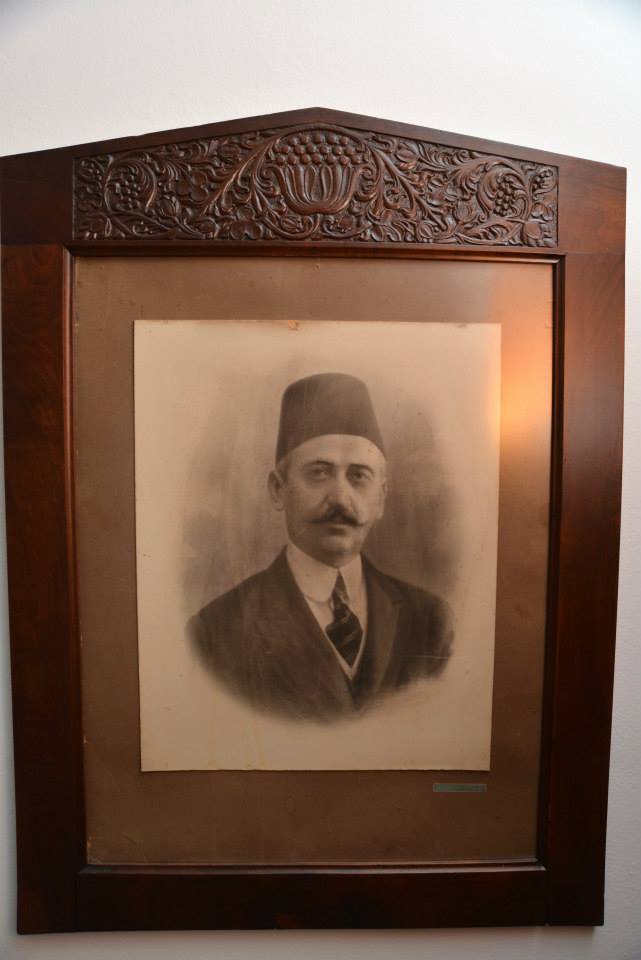Ohrid Native Popov in 1888: Even Jesus Christ Couldn’t Convince a Macedonian that They are Bulgarian or Serbian
The document, published in 1988, is yet another fact against those who deny the existence of Macedonians, their language, history, and the claim that “Tito invented the Macedonian nation.” It adds further proof as to whether, before 1944, Macedonians identified as ethnic Bulgarians or had always declared themselves ethnically distinct as Macedonians.
Temko Popov, 1888: Even if Jesus Christ descended from heaven, he could not convince a Macedonian that they are Bulgarian or Serbian.
On May 9, 1888, Temko Popov (1855-1929) from Ohrid sent a letter to Serbian propagandist Despot Badžović, of Krushevo descent, in which he spoke about the distinctiveness of the Macedonian people:
“Don’t fool yourself, Despot, the national spirit in Macedonia has
attained such a state that Jesus Christ himself, if he were to
descend from heaven, could not convince a Macedonian that he
is a Bulgarian or a Serb, except for those Macedonians in whom
Bulgarian propaganda has already taken root.”
Popov completed his education at a Greek school in Ohrid, where his family, like many wealthier families in Ohrid at the time, belonged to the Greek Patriarchal Church. He later attended high school in Athens. Popov was regarded as a Macedonian nationalist separatist, advocating for the revival of the Ohrid Archbishopric, and the creation of textbooks and newspapers in the Macedonian language (he accepted a compromise to use the Serbian alphabet, as the Macedonian alphabet had not yet been codified). However, later in his life, he became a collaborator with Serbian propaganda and politics. He worked in Serbian diplomatic missions in the Ottoman Empire, in cities such as Istanbul and Thessaloniki, and also in the embassy in Athens.
After the Young Turk Revolution, Popov became a senator in the Ottoman Empire’s parliament and lived in Constantinople (Istanbul). Both before and after World War I, when Macedonia was under Serbian rule, he served as the mayor of Ohrid. He spent parts of his life in Edirne, Bitola, Belgrade, and Sofia, where he and a group of Macedonian intellectuals formed the Macedonian Committee to fight against the denationalization of Macedonia.
In the distant year of 1888, five years before the formation of VMRO, 14 years before the publication of On Macedonian Matters by Krste P. Misirkov, 15 years before the Ilinden Uprising, 24 years before the Ottoman Empire’s withdrawal from Macedonia after the First Balkan War, and a full 56 years before the state-building Ilinden of 1944, Temko had no idea that 135 years later, politicians from Bulgaria would demand Macedonia’s acceptance of the narrative that there were no Macedonians with Macedonian national consciousness before 1944. Nor did he imagine that his letter to a friend—who was also a Serbian propagandist—would be cited in historical books and the media today, with some affirming its content while others challenge it due to Temko’s later collaboration with Serbian propaganda and politics in Macedonia.
In his letter to Despot Badžović, Temko P. continued to describe what he saw and heard in Macedonia:
“To convince yourself, you must look at the Bulgarian influence. Bulgarian propaganda has been spreading here for 20 years, just as it has in Macedonia, during the darkest time when Hellenism—a completely foreign nation—tried to take root in the Macedonian heart. When Macedonians saw the light of Slavic culture (referring to Bulgarian influence), they embraced it without noticing the existing differences. They followed it because they had detached themselves from Hellenism. But what should they do now, after 20 years of Bulgarian efforts, struggle, and vast financial investments?” Temko Popov wrote. Then, in an honest tone, on that 9th of May 1888, he continued his letter to his friend:
“It seems, dear Despot, that what is natural, though unexpected for the Bulgarians, is now happening: every Macedonian acknowledges that they are not Bulgarian and loudly declares their national identity, even though they still use Bulgarian means, having none of their own.”



